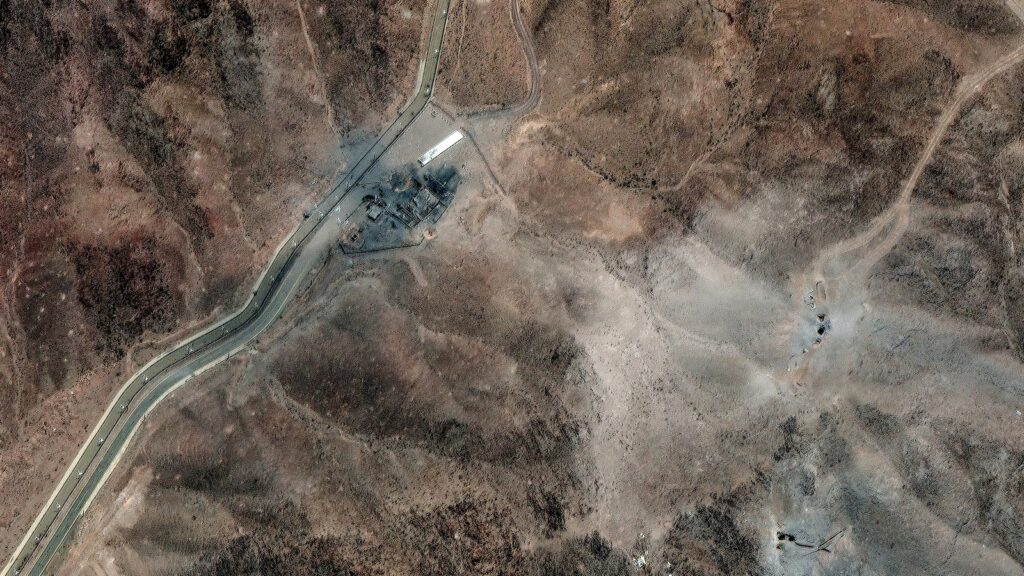
Hackers aligned with Iran have launched cyberattacks on U.S. banks, defense contractors, and oil companies in the aftermath of American strikes on Iranian nuclear facilities. The attacks, which have not yet caused significant disruptions, come amid heightened tensions following the strikes on June 23, 2025, as evidenced by satellite imagery showing damage at Iran’s Fordo enrichment facility.
The situation remains volatile, with experts warning that the ceasefire between Iran and Israel could collapse, potentially leading to intensified cyber warfare. Independent hacking groups sympathetic to Iran have also vowed to escalate their digital offensives against the United States.
Cyber Warfare: A New Front in Global Conflict
According to Arnie Bellini, a tech entrepreneur and investor, the U.S. strikes might prompt nations like Iran, Russia, China, and North Korea to increase their investments in cyber capabilities. Bellini emphasized the cost-effectiveness of cyber operations compared to traditional military engagements, noting, “We just showed the world: You don’t want to mess with us kinetically. But we are wide open digitally. We are like Swiss cheese.”
Two pro-Palestinian hacking groups have claimed responsibility for targeting over a dozen aviation firms, banks, and oil companies. These groups detailed their activities on the Telegram messaging service, encouraging others to join their efforts, as reported by the SITE Intelligence Group.
Denial-of-Service Attacks: A Growing Threat
The attacks primarily involved denial-of-service tactics, aiming to disrupt websites and online networks. One group, known as Mysterious Team, announced on Monday, “We increase attacks from today.”
In response, federal authorities are on high alert for further hacking attempts. The Department of Homeland Security issued a bulletin warning of increased Iranian cyber threats, and the Cybersecurity and Infrastructure Security Agency urged critical infrastructure operators to remain vigilant.
Iran’s Cyber Capabilities: A “Chaos Agent”
While Iran’s technical prowess lags behind that of China or Russia, it has established a reputation as a “chaos agent” through cyberattacks designed to steal secrets, score political points, or instill fear. The current ceasefire may deter state-sponsored cyberattacks, but independent hacker groups could still retaliate on Iran’s behalf.
Research by Trustwave has identified over 60 such groups, some with ties to military or intelligence agencies, others operating independently. These groups can deliver significant economic and psychological blows, as demonstrated by a recent incident where hackers manipulated an Israeli emergency alert app to falsely warn of a nuclear missile attack.
“It causes an immediate psychological impact,” said Ziv Mador, vice president of security research at Trustwave’s SpiderLabs. “Economic disruption, confusion, and fear are all the goals of such operations.”
Espionage and Intelligence Gathering
Iran has also been involved in espionage, attempting to gather intelligence on foreign leaders. Jake Williams, a former National Security Agency cybersecurity expert, highlighted Iran’s focus on intelligence collection over destructive attacks, particularly in the context of understanding U.S. and Israeli strategies.
Williams stated, “It’s fairly certain that these limited resources are being used for intelligence collection to understand what Israel or the U.S. might be planning next.”
Strengthening U.S. Cyber Defenses
The recent cyberattacks underscore the need for robust digital defenses. However, the Trump administration’s decision to reduce funding for cybersecurity programs has raised concerns. The Cybersecurity and Infrastructure Security Agency has faced budget cuts, and key personnel have been placed on leave.
Despite these challenges, experts like Arnie Bellini advocate for increased investment in cybersecurity education and infrastructure. Bellini recently donated $40 million to establish a cybersecurity center at the University of South Florida, emphasizing the importance of preparing for the ongoing cyber arms race.
“There is a new arms race when it comes to cyberwar, and it’s a contest America can’t afford to lose,” Bellini remarked. “It’s Wile E. Coyote vs. the Road Runner. It will go back and forth, and it will never end.”
The unfolding situation highlights the critical need for vigilance and preparedness as cyber warfare becomes an increasingly integral component of international conflict.







